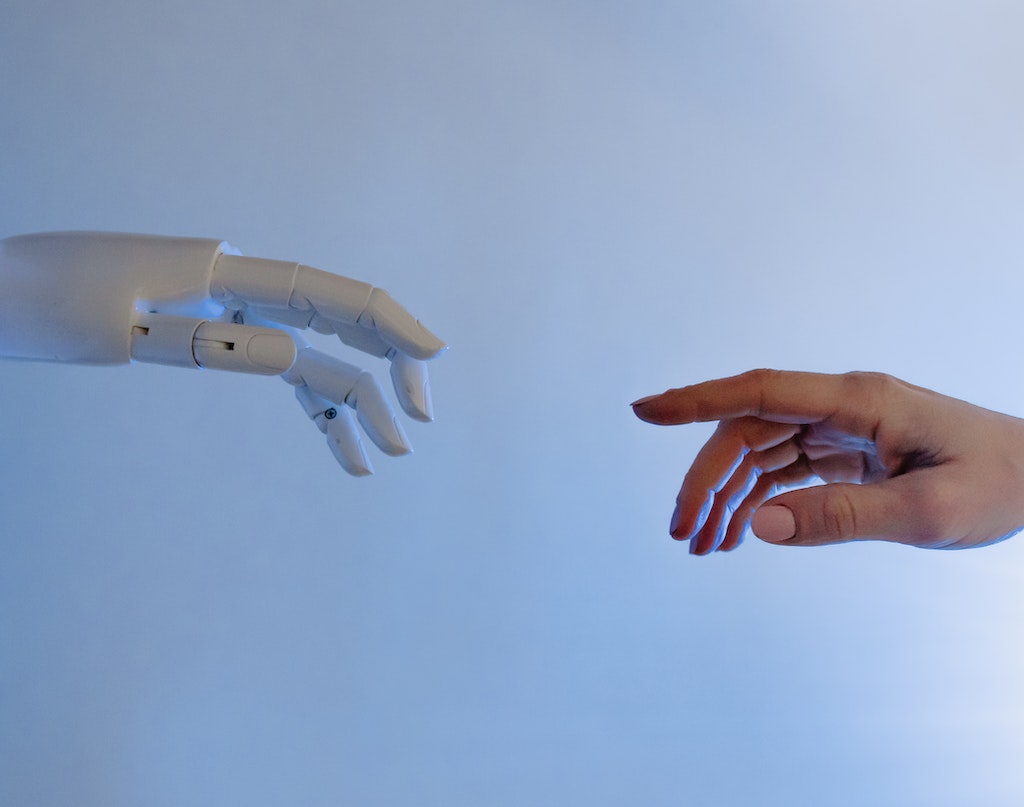We’re all talking about it: AI. It’s changed both our personal and professional lives this year, and in a few short months, it has already begun reshaping industries across the globe. From healthcare, to finance, to marketing, we’re seeing the future unfold in front of our eyes.
This is an exciting step for humanity and as we embrace this new era, it is important to remember that we will determine the future of this technology. We’ve already seen some of its capabilities; for example, it can generate creative content for marketing and sales. According to McKinsey, AI has the potential to automate work activities that absorb 60-70% of employees’ time today, and we will continue to see it open new doors and push the boundaries of human creativity and innovation.
At the same time, amidst this technological revolution, some people in the HR field are sceptical of its capabilities, and it can be hard to decipher what are legitimate concerns and what are simply fearmongering. So where do we start?
Say hello to the new kid on the block: Generative AI
Throughout this discussion, it is important for us to differentiate between the AI that we have been using for years and this new AI: generative AI. Using AI in recruitment isn’t a new concept; it has been used regularly to go through CVs and find keywords as well as helping to eliminate bias. But generative AI is bringing a whole new spin to it.
Since generative AI has been made publicly available, it is now having its place in the spotlight. As a language-based application, generative AI represents a significant advancement over previous forms of AI due to its ability to create new content and generate original output rather than relying solely on predefined rules or patterns.
It provides HR professionals with the opportunity to “interact” with AI in a way we’ve never seen before – for example through chatbots like ChatGPT. Asking certain prompts such as “Can you provide me with a list of technical questions to assess a candidate’s programming skills?” or “Can you review and suggest improvements for this job description to attract more qualified candidates?”, all help make the recruiter’s job more efficient meaning they can crack on with more complicated tasks that require human creativity.
That doesn’t sound too crazy… is that all though?
Nope – the potential is huge. Here are some of the possibilities:
- Personalized training materials and resources for employees based on their individual learning needs and preferences.
- Select employee combos to create “superteams”, matching complimentary skillsets with other employees and even promoting equal representation. By helping build demographically diverse teams it could then foster diverse perspectives that then lead to better creativity and innovation.
- Intervene far earlier with potential workplace violence by helping in risk assessment through virtual assistants that can engage with employees and provide information on available resources. This could also encourage open communication to help resolve potential matters quickly.
- Address pay equity by analysing pay data and identifying biases, patterns and potential disparities. By examining factors such as gender, race, job level, and years of experience, these algorithms can uncover hidden differences.
- Improve internal mobility efforts through helping skill assessments or personalising career development. It could analyse job requirements, employee preferences, and even future market trends to put people in the best roles.
Uh oh… what does this all mean for HR professionals? Will I lose my job?
So, with all these potential advancements, it is all starting to maybe sound a little too good and some people are getting nervous that their job maybe could be taken over by the machine.
AI is revolutionary and it is going to change the way that HR and recruitment work, there’s no two ways about it. It’s therefore so key that HR professionals educate themselves now on how they can adapt to fulfil the aspects of the job that AI can’t do. Leaning into these human and soft skills is going to be crucial to those who survive this change.
It’s true that we’re still in the early stages and often the hype around new technology is… overhyped. For example, ChatGPT is still in its infancy and has occasionally been known to be inaccurate. That being said, we can’t sit back and take this change lying down – understanding what this technology is bringing to the table and therefore where HR professionals will fit in and thrive will be the key to survival.
Phew! That makes sense – so what do we do next?
We get familiar with it! Now is the best time to really start to understand AI and make it part of our toolkit so we can stay ahead of the game. Here are some tips:
- First, informally, start learning AI wherever you can – tinker with ChatGPT, take a class on prompt design and try out generative AI in different tasks. See where it helps you, versus where it doesn’t cut the mustard. Become a prompt master!
- Use AI that’s already in your organisation – make a concerted effort to learn and use the AI-related functions that are already embedded in your company’s HR and recruitment applications.
- Experiment with new AI-driven apps for HR – read up on AI-driven software that might help your department or your individual performance. Test-drive them if they have trial pricing, while scrupulously avoiding any “shadow IT” activity. Consider suggesting a promising app for the team to your managers.
- Apply AI to higher-value and new processes – build a personal advantage by learning how AI can enable higher-value tasks, including those considered very difficult without AI. For example, it can process the volumes of data needed to address pay equity or improve an internal mobility initiative.
2023 will be a landmark year for technological innovation. It may seem like we’re in the eye of the storm right now and there is plenty of speculation about the future. But, we can grab a hold of the aspects we can control and learn how AI can be a real benefit and help the future of HR and recruitment.
Critical to harnessing the power of Generative AI will be clear leadership and alignment from HR, IT, security, and the boardroom. When we’re on the same page, we will be confident in taking our next steps into the future.









